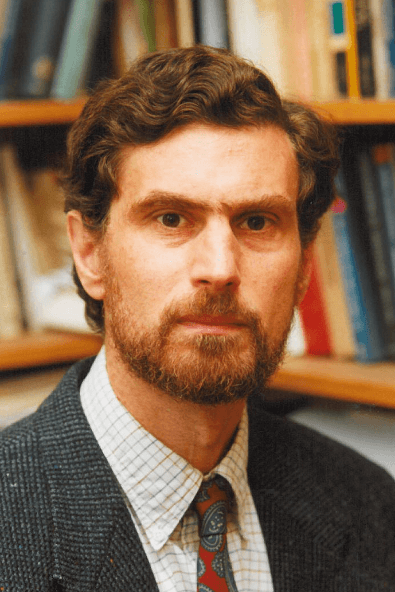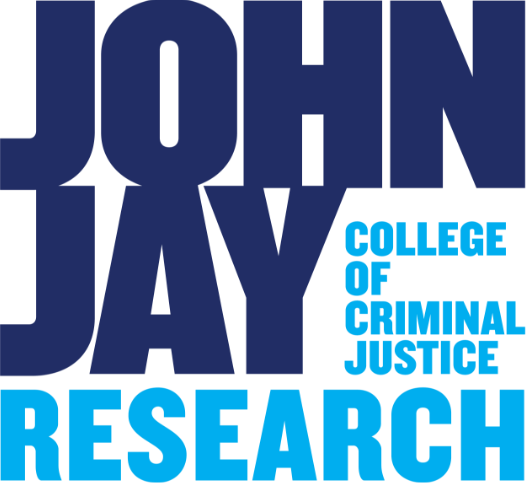UNDOING THE TIES THAT BIND US
What are the real harms of lying on our justice system… and our society?
Researchers: Maria Hartwig, Angela Crossman, Jonathan Jacobs, Heath Brown
Author: Judy Gelman Myers
Our society is built on trust. We depend on witnesses to tell the truth, corporations to conduct business in good faith, elected officials to honor their oaths and serve accordingly. On the whole, we trust each other not to lie.
But everyone lies, for better or worse, and lies are often difficult to detect. Research shows that even people trained to distinguish truth from lies do so with 54 percent accuracy, or slightly better than chance.
Four John Jay scholars want to know: what do widespread lying and a breakdown of trust mean for our criminal legal system, and for society?
DETECTING DECEPTION
For decades, law enforcement officials have been trained to detect lies using the Microexpressions Training Tool (METT). METT is based on the idea that “microexpressions”—fleeting facial cues purportedly betraying some underlying emotion—reveal whether a person is lying, and the official only needs to know how to read them to spot a liar.
John Jay Psychology Department Professor Dr. Maria Hartwig, an expert on detecting deception, has testified before a House Subcommittee that METT is based on a faulty proposition. In fact, she says, microexpressions don’t exist in sufficient quantity to indicate whether someone is lying or not; she compares deception to a disease with few symptoms, making diagnosis difficult. “Mapping that reasoning onto the deception problem, it’s not that we need to inform people how to be better diagnosticians, it’s that we can’t assume liars automatically leak signs of deception and we can just sit there and passively watch them. We have to interact with them in a strategic fashion that elicits different behaviors from liars and truth-tellers,” says Hartwig.
To do that, Hartwig has studied strategic questioning and has developed an interview technique called strategic use of evidence. Standard police practice includes showing a suspect all available evidence to bully him into a confession; Hartwig suggests withholding the evidence and developing a set of questions that truth-tellers and liars would answer differently.
Such questions would vary according to context. Say an interrogator has footage of someone entering a room where a crime was committed. An open-ended question like, What did you do on the 10th of April? will likely elicit two different responses from a suspect who entered the room but isn’t aware the footage exists: the subject who committed the crime likely won’t mention entering the room at all, while an innocent subject may mention being there, not having any idea that a crime had been committed.
Hartwig, alongside Visiting Scholar and investigations and counterintelligence expert Mark Fallon and Ph.D. student Braden Campbell, is creating an online platform where law enforcement professionals and researchers can exchange ideas. “I can generate research on how to improve practice through strategic questioning, but research is an exercise in futility if the techniques are never presented to the police as alternatives to current practice,” she says.
ELICITING THE TRUTH
Adults are no better at detecting children’s lies; the 54 percent hit rate still applies. Dr. Angela Crossman, Chair of the Psychology Department, has spent her career studying the lies children tell and why they tell them. She’s found that in the context of the criminal justice system, the biggest problem with children’s testimony springs from the adults in the room.
During a criminal investigation, many interviewers push their point of view so hard that they introduce false information, which kids subsequently confirm—an error known as confirmation bias. Other interviewer behaviors can result in a child’s unwillingness to respond at all.
From the child’s point of view, the interview context represents a fundamental difference from real life. In real life, adults usually know the answers to the questions they ask children, but in an interview, it’s the child who knows the answer and the adult who doesn’t. A good investigator treats the child as the expert and makes him or her comfortable enough to reveal the truth of what happened.
Ironically, Crossman says, we teach children not to lie, but we also teach them not to tell the full truth. She recently conducted a study of adults’ reactions to children who were very honest or very dishonest. She found that the adults would punish the liars but also reacted negatively to the kids who told the blunt truth. Says Crossman, “It’s an interesting mixed message that you really should be honest, but I don’t really like you if you tell me the whole truth.” That mixed message can have severe repercussions in a criminal justice setting, where it can impede the search for truth.
THE POWER OF TRUST
To Dr. Jonathan Jacobs, Chair of John Jay’s Department of Philosophy and Director of the Institute of Criminal Justice Ethics, honesty should form the basis of the criminal justice system. “One of the most central, fundamentally important things that criminal proceedings can do is convict the guilty and acquit the innocent,” he says. “We want it to do that accurately; for that to happen in a reliable way, and in a way that is morally intelligible, that would seem to, in general, require that people represent their minds truthfully.”
As honesty is a vital part of criminal proceedings, so too does Jacobs consider trust a vital aspect of the social world. But he sees current practices in incarceration as undermining that foundation. While those living in a free society can interact and build trust with all types of people on any given day, Jacobs argues that these interactions are limited in a carceral setting. As residents of what sociologist Erving Goffman calls a “total institution,” incarcerated persons often live separated and highly regimented lives that, due to arbitrary decision-making and poor conditions, give them few reasons to develop and practice trust. And one of the worst effects, he says, is the lack of trust returning citizens encounter once released from prison. People with a record may have trouble borrowing money from a bank, finding housing, or getting hired, among other significant obstacles. To Jacobs’ mind, this creates enduring punishment that lasts long after a prison term is served.
According to Jacobs, creating conditions through incarceration that make the justice-involved less capable of participating in civil society once they are released is doing them a very serious harm. “If I’m not extending trust to you, it means you are not being fully included in the social world. It’s internal exile. That’s not just bad for that person; it diminishes our society as well.”
THE BIG LIE
Historically, we haven’t just trusted in each other to behave honestly; we also place trust in our government. But affective partisanship—a deeply held distrust of people from other political parties—is currently gripping our country so tightly that it undermines values of honesty and transparency, from the campaign trail to Capitol Hill. Being honest holds less persuasive power, from everyday Americans voting strictly along party lines to members of congressional subcommittees who only accept evidence presented by their own parties.
“When you have such high levels of partisan identity that candidates can do almost anything and their party will continue to support them,” says Dr. Heath Brown, Associate Professor of Public Policy in the Department of Public Management, “lying in politics becomes almost inconsequential. The fact that lying doesn’t matter like it would have mattered in the past is an incredibly damning feature of our politics today.”
The link between partisanship and non-transparency is evident in presidential campaigns. Increased spending on digital media advertising caters to partisan bias. While TV advertising is basically open and well-regulated, Brown argues that social media ads are much less clear. “We don’t know where it’s coming from, whether what I’m seeing is the same thing that you’re seeing, whether language has been altered.”
In addition, what Brown characterizes as one of the biggest lies in presidential politics is told by every candidate regardless of party: glossing over policy proposals and avoiding discussion of their transition and legislative plans in favor of ideology- or personality-driven campaigning. “If candidates didn’t have to be transparent at all, most of them wouldn’t be,” Brown says, because it opens campaigns up to “gotcha” questions and accusations of arrogance. This behavior is pernicious in Brown’s view, because preparing to govern is a good and responsible thing that every candidate should be doing in full view of the voters, and especially important when weighing a candidate’s agenda.
“No one should want for the person to start planning for governance on the day after the election. Debate moderators should always ask candidates to rank their priorities, rather than asking, What’s your opinion on this or your plan on that? In 2008, Barack Obama made a decision to put healthcare first and immigration somewhere else down the agenda. It’s why we have the ACA and we didn’t end up with an immigration bill,” says Brown. “Agenda matters so much.”
ALL THE WAY DOWN
If trust is the glue that holds our society together, will lying be its undoing? Jonathan Jacobs fears it might. Says Jacobs, “I find it shocking how comfortable some senior administration officials have been about either refusing to disclose things, misrepresenting things, or just lying.”
He’s especially concerned that today’s teenagers believe this is simply what politics is like. Worse, they may get the sense that lying is discretionary: it’s okay to lie when there’s something to be gained from it, and if they’re caught lying, it’s okay to lie about having lied.
He’s also worried that many Americans don’t understand the principles and values that are supposed to be reflected in our political institutions and the way they work. “They’re getting the impression that those things are just rhetoric. It’s as though there’s no civics anymore—no enduring, shared principles and values of political order—there’s only politics.”
When values like honesty and trust become mere buzzwords, they lose their capacity to bind us as a nation. So what can be done? Heath Brown has proposed one way to mitigate polarization at the level of local and state races, which he calls “democracy vouchers for the future.” The idea is to democratize the effect of money in politics, by giving funds to high school students between the ages of 14 and 18 that can be used for campaign contributions. This forces candidates to take younger voices into account, grows youth engagement prior to voting eligibility, and may help to restore trust in the system, to the benefit of all. JJ
Research is an exercise in futility if the techniques are never presented to the police as alternatives to current practice.
—Maria Hartwig

One of the most central, fundamentally important things that criminal proceedings can do is convict the guilty and acquit the innocent. For that to happen in a reliable way, that would require that people represent their minds truthfully.
—Jonathan Jacobs
